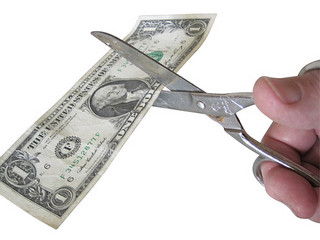5 Habits That Will Boost Your Productivity
 Who doesn’t like that feeling of being productive while expending little energy? I sure love feeling like I’ve gotten a lot done without feeling like I’ve been through the wringer. Here are five habits that I use to boot my productivity.
Who doesn’t like that feeling of being productive while expending little energy? I sure love feeling like I’ve gotten a lot done without feeling like I’ve been through the wringer. Here are five habits that I use to boot my productivity.
Plan The Night Before
One of Murphy’s corrolarries says that work will expand to fill all available time. I find that if I don’t have a plan, everything takes too long, and I never get to the stuff that I have vaguely in my mind tagged as important.
By making a plan the night before, I know what the things I want to get done are. This gives me a starting place in the morning, and allows me to tackle the “big rocks”.
Taking it one step further, I limit what I must do to three items. Leo Baubata of Zen Habits calls these “most important tasks (MITs)”. I call them “must do” tasks. These are the things that I must do to call the day done – even if I have them done by nine in the morning! The rest is, as they say, all gravy.
Check Emails At A Set Frequency
Having email constantly pinging and distracting you is a good way to fragment your attention. Since we as humans don’t really multitask, but rather slice our attention, having email notifications come up will derail what you are trying to do – particularly if you get many emails every hour.
Set your email checking to be specific times of the day. Choose the frequency you can check, and stick to those times. I know this sounds easy, but it is actually difficult! This will give you a chance to focus on your email without sidetracking you from other tasks.
I find it best to have two different types of checking schedules: one for home, and one for work. For home, I limit myself to twice a day. This keeps me from checking emails when I should be doing something else (like writing blog posts, for instance). Work is another matter – I need to be more responsive, so I check my email every hour. I may keep it running, but I turn off notifications and minimize it to my system tray so that it is not distracting me, but at the same time saves me having to restart Outlook (always a slow process) every hour.
This strategy can also be applied to social media. 🙂
Leave Your Desk
Sometimes being at your desk, with access to your computer, is actually a distraction. Even if you’re not working on the computer,it is still here, beckoning you to check Facebook or Twitter. Removing the distraction can actually make you get more done.
Example: a friend and I trade daily emails about a book we are both reading. I generally read it first thing in the morning, but if I sit down at my desk to read, I will naturally gravitate toward my computer, and the next thing I know it’s an hour later and I still haven’t done the reading. By reading the book away from my desk and taking notes on what I want to talk about on (gasp!) paper, I actually get through it much quicker.
If you don’t need to be at your desk, try another space and see if you don’t get things done quicker.
Extend Your Focus Depth
In this world of constant distractions, many of us find it is hard to concentrate. The tactic most people use is to put this distraction to work by multitasking. Unfortunately, multitasking doesn’t work, but it seems like we’re really productive because we have a lot demanding our attention.
You can work on focusing on one task, but most people these days have a really hard time doing that. Myself included, since I have been distracted five times while writing this article thus far. By working to extend how long you can single-task, you will find yourself able to focus longer and get more done as you concentrate deeper on a task.
How do you get there? A book I am reading, which I will review tomorrow, gives a great method using a timer. Set your timer for 5 minutes and work that long. When you can easily do 5 minutes, move the timer up.
Switch Off 30 Minutes Before Bed
One of the most detrimental things to productivity can be fatigue. We can avert fatigue my making sure we eat right, exercise, drink enough water and sleep enough. Common sense, really.
But most people are looking at screens until right before bed. And screens can actually keep you from falling asleep, cutting into your sleep time.
By switching off 30 minutes before bed, you give yourself time to unwind, de-screen, and settle into a comfortable place from which to sleep.
A few simple habits: planning your day, limiting email, leaving your desk, extending your focus and switching off can net huge productivity gains. Do you have any to share? Let us know below.
Photo by jurvetson


